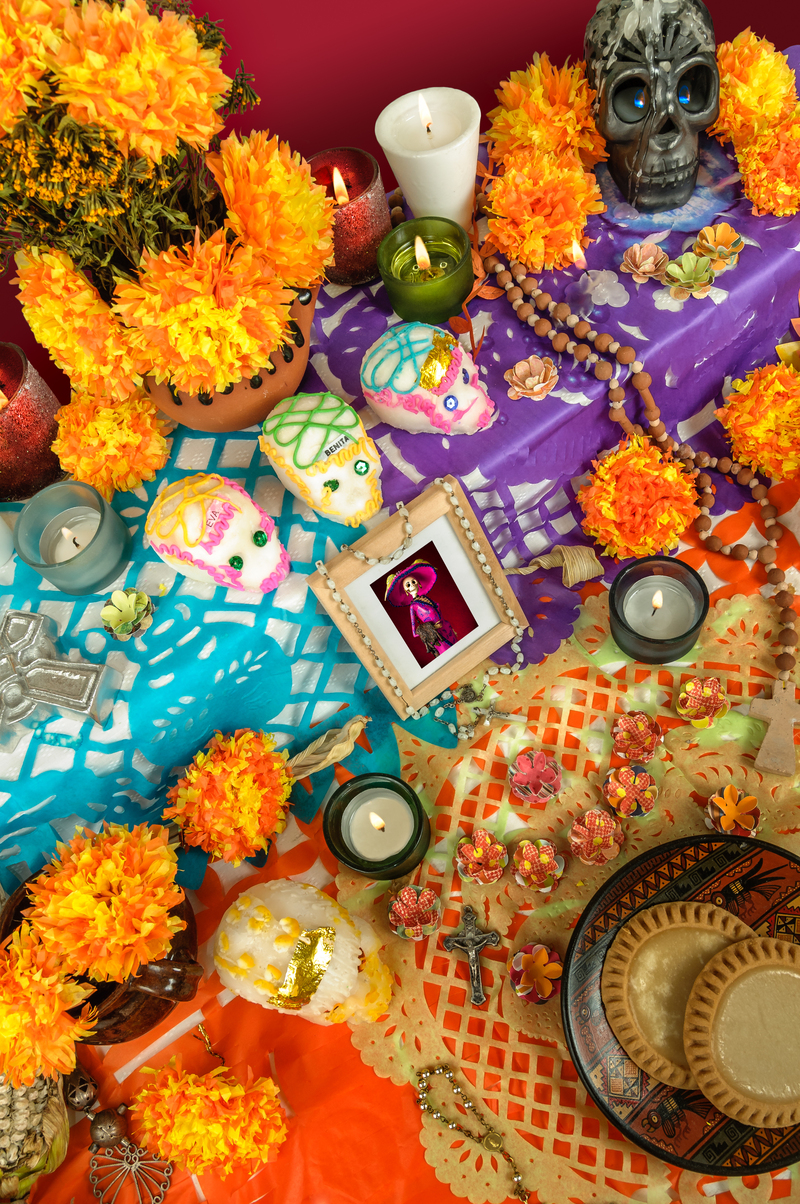The Hidden Meanings of Birth Flowers: What Yours Means for You
Posted on 03/07/2025
The Hidden Meanings of Birth Flowers: What Yours Means for You
Birth flowers are more than just a beautiful addition to a bouquet or garden; they are steeped in history, symbolism, and tradition. Each month of the year is associated with a particular flower, each expressing unique emotions, traits, and hidden meanings. Whether you're aware of your birth month flower or not, these blooms can offer intriguing insights into your personality, your strengths, and even the way others might perceive you.
What Are Birth Flowers?
Just as birthstones correspond with each month, birth flowers are the blossoms that symbolize the month in which an individual was born. These flowers have been assigned based on ancient Roman, Greek, and Chinese traditions as well as Victorian language of flowers, where various blooms were thought to convey secret messages and meanings.
The language of birth flowers is charming and meaningful. These blooms are not only a wonderful way to celebrate birthdays, but can also serve as a thoughtful gift, an element in personal branding, or a deeper look into your own unique character traits.

Birth Flower Meanings by Month
January: Carnation & Snowdrop
- Carnation: Known for its ruffled beauty, the carnation is a flower of love, fascination, and distinction. Those born in January share the carnation's resilience and understated elegance.
- Snowdrop: This delicate bloom symbolizes hope and new beginnings, perfect for those born in the first month of the year.
February: Violet & Primrose
- Violet: Representing faithfulness, wisdom, and modesty, violets suggest a quiet inner strength and deep loyalty.
- Primrose: Associated with young love and protection, this flower appeals to the romantic souls of February births.
March: Daffodil
- Daffodil: Symbolizing rebirth, creativity, and inspiration, daffodils are a perfect reflection of the optimism and cheerfulness of March-born individuals.
April: Daisy & Sweet Pea
- Daisy: With a meaning rooted in innocence, purity, and loyal love, the daisy highlights the trustworthy and gentle nature of April birthdays.
- Sweet Pea: This fragrant blossom embodies pleasure and blissful pleasure, perfect for those who bring joy wherever they go.
May: Lily of the Valley & Hawthorn
- Lily of the Valley: Signifies sweetness, humility, and a return to happiness, making it an iconic symbol for May-born individuals who uplift those around them.
- Hawthorn: Known as the flower of hope, hawthorn encourages renewal and positivity.
June: Rose & Honeysuckle
- Rose: Universally beloved, the rose represents love, passion, and deep affection. People born in June may be kind-hearted and deeply loving.
- Honeysuckle: Associated with bonds of love, those with this flower are often seen as warm and affectionate.
July: Larkspur & Water Lily
- Larkspur: A tall, striking flower that stands for lightness, positivity, and open-heartedness. People with July birth month flowers may be uplifting to others.
- Water Lily: Symbolizes purity of heart and majesty.
August: Gladiolus & Poppy
- Gladiolus: The flower of strength, moral integrity, and remembrance. August-born individuals are believed to be strong-willed and passionate.
- Poppy: Often linked to imagination and peace, poppies suggest a creative spirit.
September: Aster & Morning Glory
- Aster: Represents wisdom, faith, and valour--a reflection of the wise and dependable nature of September birthdays.
- Morning Glory: Symbolizes affection and tenacity.
October: Marigold & Cosmos
- Marigold: Signifies warmth, creativity, and fierce passion. October birth flowers hint at vitality and boldness.
- Cosmos: With meanings of harmony and peace, cosmos are ideal for those who value balance.
November: Chrysanthemum
- Chrysanthemum: Associated with joy, fidelity, and longevity, this flower's many variations resonate with November-borns' dynamic personalities.
December: Narcissus & Holly
- Narcissus: Represents success, wealth, and self-esteem. December individuals stand out for their ambition and vitality.
- Holly: Offers protection and signifies domestic happiness.
Unveiling the Symbolism: What Your Birth Flower Says About You
Understanding the hidden meaning behind your birth flower offers unique insight into your personal traits and how you influence the world. Each flower symbolizes distinct virtues and qualities. Here's an in-depth look at what your own birth month flower might reveal:
- January (Carnation, Snowdrop): Strength, hope, and pureness--inspiring resilience in times of adversity.
- February (Violet, Primrose): Loyalty, humility, romance, and a deep care for loved ones.
- March (Daffodil): Joy, creativity, and an uncanny ability to see the bright side of any situation.
- April (Daisy, Sweet Pea): Innocence fused with vibrant energy; a peacemaker and source of happiness.
- May (Lily of the Valley, Hawthorn): Gentle, optimistic, and the person friends turn to for hope.
- June (Rose, Honeysuckle): Deeply loving, passionate, and unafraid to show their true feelings.
- July (Larkspur, Water Lily): Friendly, positive, and always eager to support others.
- August (Gladiolus, Poppy): Courageous, ethical, and driven by imagination.
- September (Aster, Morning Glory): Wise, trustworthy, and tenacious in their pursuits.
- October (Marigold, Cosmos): Dynamic, creative, with a love for harmony and peace.
- November (Chrysanthemum): Joyful, faithful, and ever-evolving, mirroring the flower's diversity.
- December (Narcissus, Holly): Ambitious, festive, and a natural bringer of good cheer.
Birth Flowers and Their Cultural Significance
The language of flowers and birth months stretches across cultures. In Victorian England, they were frequently used to convey secret messages between lovers and friends. In Eastern cultures, certain birth flowers were believed to grant longevity and good fortune. Naming a child after a flower or giving birth month flowers as a gift is a time-honored way of conferring blessings and positive energy.
The Victorian "Language of Flowers"
- Secret Love Notes: In the 19th century, flowers were used instead of words to send covert messages, especially in courtship.
- Gift Giving: Birth flowers became meaningful birthday gifts--each petal and color adding to the message.
- Art and Fashion: Birth flowers graced jewelry, embroidery, and fine china as personal emblems.
How to Embrace the Symbolism of Your Birth Flower
How can you integrate your birth flower into your life? The deep symbolism of these blooms lends itself to endless creative and meaningful uses. Here are some stylish and heartfelt ideas:
- Personalized Jewelry: Wear a charm or pendant featuring your birth month flower for a unique touch of identity.
- Birth Flower Tattoos: Choose a tattoo design inspired by the intricate beauty and meaning of your birth flower.
- Home Decor: Incorporate artwork, prints, or fresh arrangements of your flower for a daily reminder of your inner strengths.
- Name Inspiration: Many parents select flower names (like "Rose" or "Lily") for children born in a particular month.
- Floral Gifts: Send someone their birth flower for a birthday, anniversary, or as a heartfelt surprise.
Birth Flowers as Meaningful Gifts
Selecting a bouquet based on the hidden meaning of birth flowers creates a more thoughtful and personal gift. Not only does this show extra care and attention, but the recipient can treasure the deeper symbolism attached to their birth month bloom. Consider pairing flowers with handwritten notes explaining the significance, for the ultimate sentimental gesture.
Creative Gift Ideas
- Customized Greeting Cards: Feature the birth flower and its meaning.
- Birth Flower Candles or Perfumes: Enjoy the scent and symbolism tailored to the recipient.
- Garden Kits: Seeds or bulbs of birth flowers, encouraging loved ones to grow their bloom.
FAQs: Common Questions About Birth Flower Meanings
- Q: Can I have more than one birth flower?
A: Yes, some months feature two flowers or even more, offering a blend of meanings and symbolism. - Q: Are birth flower meanings the same worldwide?
A: Not always. While many are consistent in the Western world, some cultures assign different flowers or attribute distinct meanings. - Q: How were birth flowers chosen?
A: Most derive from ancient Roman and Greek customs, as well as the language of flowers in the Victorian era. - Q: Is it lucky to receive your birth flower?
A: Many believe receiving your birth flower brings luck, love, and happiness.

The Timeless Appeal of Birth Flower Symbolism
Birth flowers are a delightful blend of history, nature, and personal symbolism. Whether you wear them, grow them, or give them as gifts, they serve as constant reminders of our unique characteristics and the deeper meanings we carry throughout our lives.
Learning the hidden meanings behind your birth flower is a journey into the poetic side of human nature. Embrace your bloom, celebrate your birth month, and carry the flower's secret language forward--adding beauty, tradition, and significance to every moment.
Conclusion: What Does Your Birth Flower Mean for You?
From carnations signifying determination to chrysanthemums offering joy and longevity, birth month flowers hold timeless significance. Understanding what your birth flower means for you can be a source of inspiration, self-knowledge, and connection to ancient wisdom. Whether you're gifting blooms to a friend or infusing your life with the symbols of your birth month, you're keeping a centuries-old tradition alive--rooted in beauty, meaning, and the quiet language of flowers.
Next time you walk through a garden or receive a bouquet, pause and reflect--could your birth flower be whispering secrets about who you truly are?
Latest Posts
Mother's Day Flowers in [AREA]: Local Trends and Offers for [NEXT YEAR]
Sunflowers: more than just a pretty face, discover why
Create a Green Oasis with Minimal Effort Office Plants
The Hidden Meanings of Birth Flowers: What Yours Means for You





